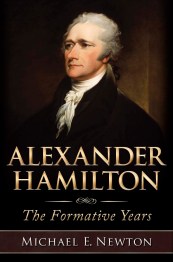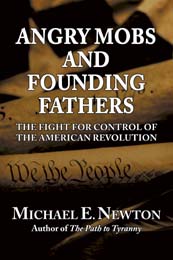Logic holds that taxes cannot exceed the value of the thing being taxed. Income taxes cannot exceed 100%, though FDR wanted them to. Sales taxes can never exceed 100% because the value of the good must make up a certain percentage of the cost. Property taxes can never exceed the value of the property because the value of the property would immediately fall to zero and there would be nothing to tax.
But with today’s Supreme Court ruling on Obamacare, in which non-activity is being taxed, there is no limit to the taxes that could, in theory, be imposed. The government could, if it wanted to, implement a tax of whatever it wants, let’s say one million dollars per person, for not buying health insurance, or not buying a house, or not buying something else.
Alexander Hamilton argued that the Constitution should not limit the power to tax or the power to spend. He wrote in his Report on Manufactures:
The power to raise money is plenary and indefinite; and the objects to which it may be appropriated are no less comprehensive than the payment of the public debts, and the providing for the common defence and general welfare. The terms “general welfare” were doubtless intended to signify more than was expressed or imported in those which preceded; otherwise numerous exigencies incident to the affairs of a nation would have been left without a provision. The phrase is as comprehensive as any that could have been used.*
Nevertheless, he and all the other Founding Fathers understood that there are natural limits to taxation, as Alexander Hamilton explained in Federalist No. 21:
It is a signal advantage of taxes on articles of consumption, that they contain in their own nature a security against excess. They prescribe their own limit; which cannot be exceeded without defeating the end proposed, that is, an extension of the revenue. When applied to this object, the saying is as just as it is witty, that, “in political arithmetic, two and two do not always make four.” If duties are too high, they lessen the consumption; the collection is eluded; and the product to the treasury is not so great as when they are confined within proper and moderate bounds. This forms a complete barrier against any material oppression of the citizens by taxes of this class, and is itself a natural limitation of the power of imposing them.
Unlike Hamilton’s and the Founder’s system of relying primarily but not exclusively on consumption taxes, we now have a system wherein a tax can exceed a person’s income or net worth and be totally “constitutional.” The Obamacare penalty, I mean tax, can be set at whatever dollar level the politicians choose regardless of income or wealth. Or they can enact other similar taxes for not purchasing a given good or service. They have paved the way for unlimited taxes .
* For those who argue that this gives the government unlimited power, Hamilton added:
A power to appropriate money with this latitude which is granted too in express terms would not carry a power to do any other thing, not authorised in the constitution, either expressly or by fair implication.
– Michael E. Newton is the author of the highly acclaimed The Path to Tyranny: A History of Free Society’s Descent into Tyranny and Angry Mobs and Founding Fathers: The Fight for Control of the American Revolution. He is currently writing a book about Alexander Hamilton.





You must be logged in to post a comment.